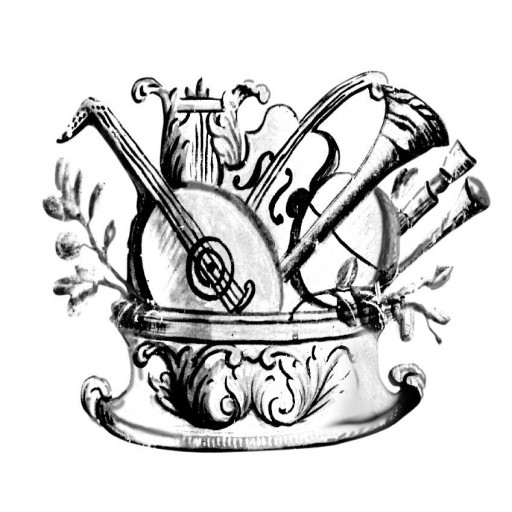Photos of university / #ruhrunibochum
Laser and Photonics Engineering at Ruhr University Bochum offers a comprehensive multidisciplinary education and research experience in the rapidly evolving fields of laser technology and photonics. This programme is designed to equip students with a deep understanding of the fundamental principles of laser physics, photonic materials, and optical systems, as well as the practical skills needed to develop innovative solutions in industries such as telecommunications, manufacturing, medical technology, and research. The curriculum integrates theoretical coursework with hands-on laboratory training, allowing students to gain proficiency in the design, characterization, and application of laser sources, optical fibers, and photonic devices. Students will explore topics including nonlinear optics, laser dynamics, optical sensors, and the integration of photonic components into complex systems. The programme emphasizes current research trends and technological advances, preparing graduates for both industry roles and doctoral studies. Collaboration with industry partners and participation in cutting-edge research projects provide students with valuable practical experience and networking opportunities. The programme is suitable for students interested in physics, engineering, and applied sciences, who wish to contribute to the development of next-generation optical technologies. With state-of-the-art laboratories and a strong support network, Ruhr University's Laser and Photonics Engineering programme offers an excellent environment for aspiring scientists and engineers to thrive in this innovative and impactful field.
Educational organisation
About one third of the studies consists of mandatory modules - the remainder is the student's own choice in the area of "Lasers and Photonics" and in other areas in engineering and natural sciences. The programme has the following structure:- seven mandatory modules (42 out of 120 credit points, first and second semester)
- one mandatory elective modules (at least 20 out of 120 credit points, first to third semester)
- one free elective module (at least 16 out of 120 credit points, first to third semester)
- one module practical courses (at least six out of 120 credit points, first to third semester)
- Master's thesis (30 out of 120 credit points, fourth semester)
For the mandatory elective module, students should choose courses from the catalogue on offer. Usually, these courses are from or closely related to the area of "Lasers and Photonics".
The practical courses consist of hands-on lab courses in areas of current scientific research as well as seminars.
For the free elective module, you are free to choose any course offered at the university (e.g. economics, marketing, legal issues, or further technical courses).
Study abroad unit(s)
We strongly support students who want to study for one semester at another university outside Germany. It is even possible to write the Master's thesis abroad. In preparation for the study abroad period, students will be supported by staff members of the student service both at the Faculty of Electrical Engineering and at the International Office of the university.Internships
NoneForms of assessment
Oral examinations are given as an assessment at the end of the compulsory modules. Some elective courses might end with a written exam. In addition, each student must actively participate in practical courses, give presentations in seminars and write his or her Master's thesis.Course objectives
Students achieve qualification in optical technologies. They are able to solve scientific and engineering problems with optical methods and they are well trained in the presentation and discussion of their results in oral and written form. They are well qualified for the international job market in the area of optical technologies and they may continue scientific work in a PhD programme.Language requirements
Proof of proficiency in English has to be provided at level B1 CEFR (Common European Frame of Reference). The acknowledged international test agencies are: TOEFL (score of at least 70 out of 120 iBT or 505 out of 677 PBT or 175 out of 300 CBT), IELTS (overall score at least 4 out of 9) or PET (at least a pass). Candidates who have earned a Bachelor's degree in an anglophone Bachelor's programme also comply with the English language requirements.Academic requirements
Applicants must have completed at least six semesters (three years) of university studies and hold a Bachelor's degree in electrical engineering, mechanical engineering, physics, chemistry, or similar. The overall average grade (GPA) should be at least "good" (for example, at least 73% out of 100%). Proof of proficiency in English should also be provided. The acknowledged test agencies are: TOEFL (score of at least 70 out of 120 iBT or 505 out of 677 PBT or 175 out of 300 CBT), IELTS (overall score at least 4 out of 9) or PET (at least a pass). Candidates who have earned a Bachelor's degree in an anglophone Bachelor's programme also comply with the English language requirements.Enrolment fees
About 270 EUR per semesterThe fee includes a semester ticket covering public transport in the state of North Rhine-Westphalia and discounts at cinemas, theatres and the refectory of the university.
Costs of living
Minimum of 670 EUR per month to cover personal and living expensesJob opportunities
Student jobs are offered by the participating institutes.Arrival support
Support is given by the International Office of the university.Services and support for international students
Support is given by the International Office of the university. Individual coaching is provided by the dean's office and by the participating institutes.Accommodation
Support in the search for accommodation is given by the AKAFÖ Student Services.AKAFÖ provides around 4,500 accommodation places in 19 halls of residence. You can find all of the important information for this as well as an online application on the homepage of the AKAFÖ in Bochum.
For further information, you may contact them during their opening hours at AKAFÖ - Department Studentisches Wohnen (Student Accommodation) - Studierendenhaus, Room 062 or write an e-mail to: studentischeswohnen@akafoe.de.










